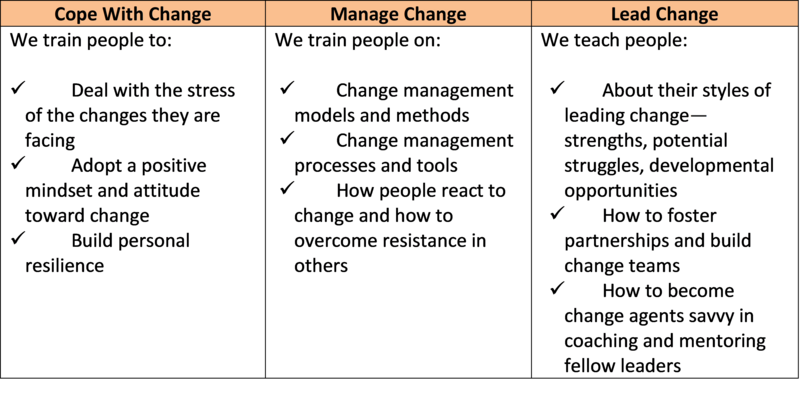ATD Blog
Are You Training Your Workforce to Lead Change, Manage Change, or Survive?
Wed May 15 2024

What change is your organization experiencing now? Merger, acquisition, reorganization? New technology implementation, digital transformation, or artificial intelligence (AI) disruption? Major new product or service-offering launch? All of these and more?
Sobering statistics show that an abysmal percentage of major organizational changes fail. We all know the carnage that results from these missteps: lost investment, customer dissatisfaction, and employee cynicism.
While we have a LOT of experience with change, we have far less experience with change done right.
As a learning and development professional, what can you do?
Analyze how your organization prepares people for change. How many of these bullet points can you say “yes” to?

If you’re like most organizations, you answered “yes” to one or two Cope With or Manage Change learning opportunities, but “no” to all the critical competencies under Lead Change.
In most organizations, the focus is on helping people deal with the changes they are handed—versus collaborating to design and implement executable change that they own; and also on managing change—the methods and tools—not on leading change.
For a deeper dive, ioin me in the session Learn to Lead (Not Merely Manage) Change at the ATD International Conference & EXPO in New Orleans, Louisiana, on May 20, 2024.
